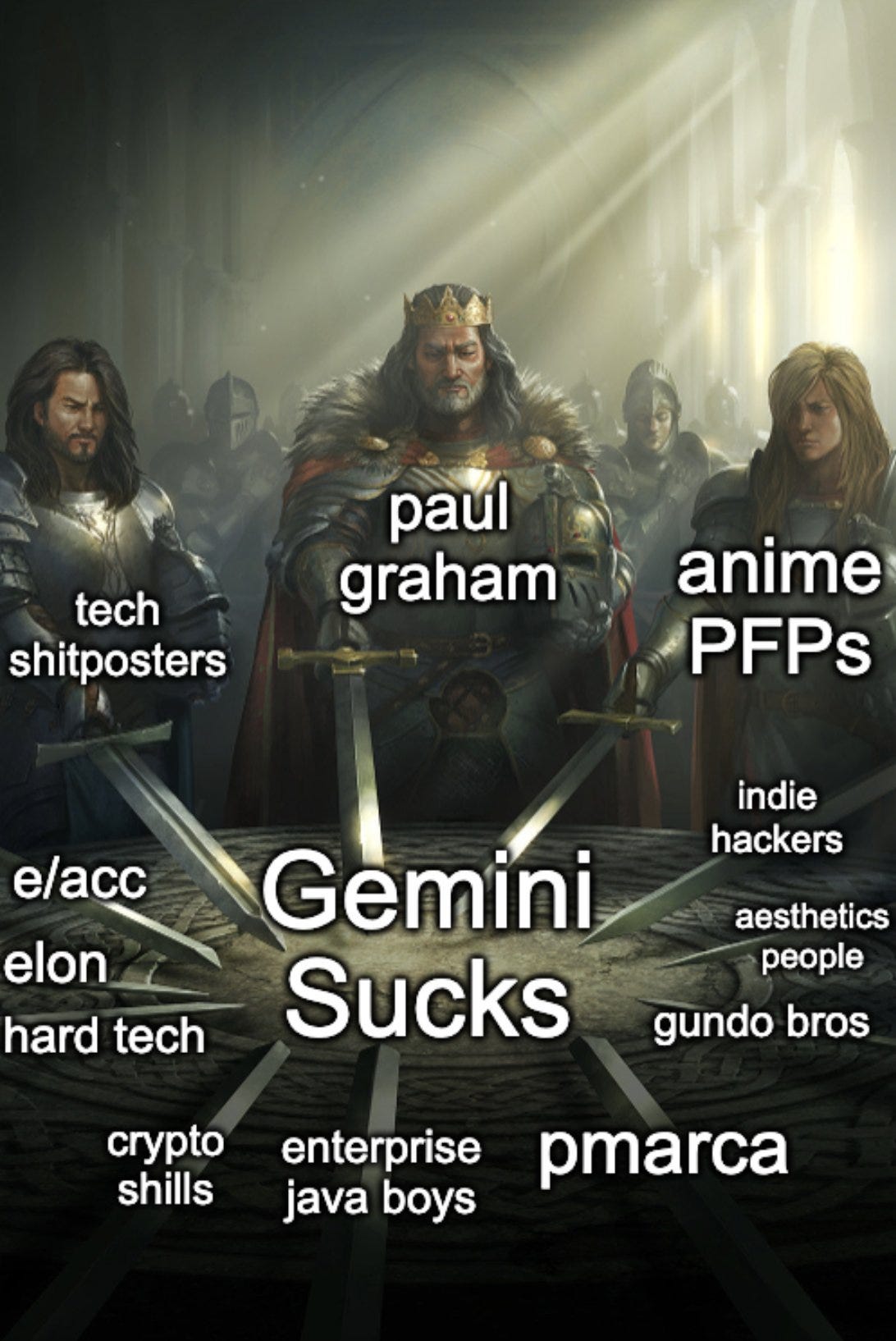ASAP Asabiyya
Combining AI, Crypto and Social tech for constructive aims
It's easy to unite tribes against something. But how to combine decentralized tech - AI, Crypto and Social - to unite tribes for something?
For things like advancing human flourishing, longevity and tech progress.
Ibn Khaldun's concept of asabiyya in a nutshell is brother against brother, but then brothers united against cousins, and then all united against kids from other street and then the whole village united against a neighboring village.
Mike Solana had a great article titled JUMP telling a story he believed as kid: "if every person in China jumped at the same time, their impact would knock our planet off its axis and the world would end" and using it as a metaphor for a mass hysteria enabled by internet.
John Robb uses the term empathy triggers that are essential to mobilize network swarms - a kind of egregores that take on a life of their own. It's important to understand that people only scan new and pattern-match everything to their ideological priors. They get social cues from tribal leaders and they get into addictive feedback loop - sharing the current thing.
De(con)struction is easy, construction is hard. It's time to build, as the e/acc people say. And the ability to build is the ultimate hard power, says Balaji Srinivasan. Declining empires throw bombs and leaflets with propaganda, but dynamic empires build infrastructure. Often orders of magnitude faster and cheaper than their senile competitors.
Internet is to the US what America was to Europe, a new frontier, says Balaji. And the question for the new parallel establishment and parallel institutions is how to get really good and fast at building - by combining sufficiently decentralized tech like AI, Crypto and Social.
So the ASAP asabiyya is an idea that combines the mythical automated voting app for digital tribes, that people like Curtis Yarvin talk about, with crypto and open source AI - for constructive rather than destructive aims.
Social media is an ultra-democracy, says Balajis, where people (up)vote constantly leaders of their digital tribe - even from the other side of the globe, like in El Salvador or Dubai. The industrial censorship complex [5] tried to destroy this ultra-democracy, but for now we seem to be winning, thanks to Elon Musk taking over twitter and Farcaster gaining traction.
AI is upstream of drones, robotics and manufacturing. With digital fabrication we can get towards dark factories, where lights can be switched off as machines don't need them. Current generative AI is what Alex Karp describes as poetry AI - it's still in a demo stage. Google's Gemini is a sad joke of a woke poetry AI.
AI makes everything fake, crypto makes it real again, says Balajis. This goes beyond generative AI, and soon "not your keys not your drones" will be material. Crypto projects get constantly hacked and produce cybersecurity veterans.
Pseudonymous economy, where AI agents can partake using digitally native (crypto)currencies will be crucial to advance AI.
ASAP asabiyya is the idea of merging decentralized tech for constructive aims. Going from an opaque renaissance, created by niche digital tribes and AI's black boxes, to dark factories of (post)American dynamism.

